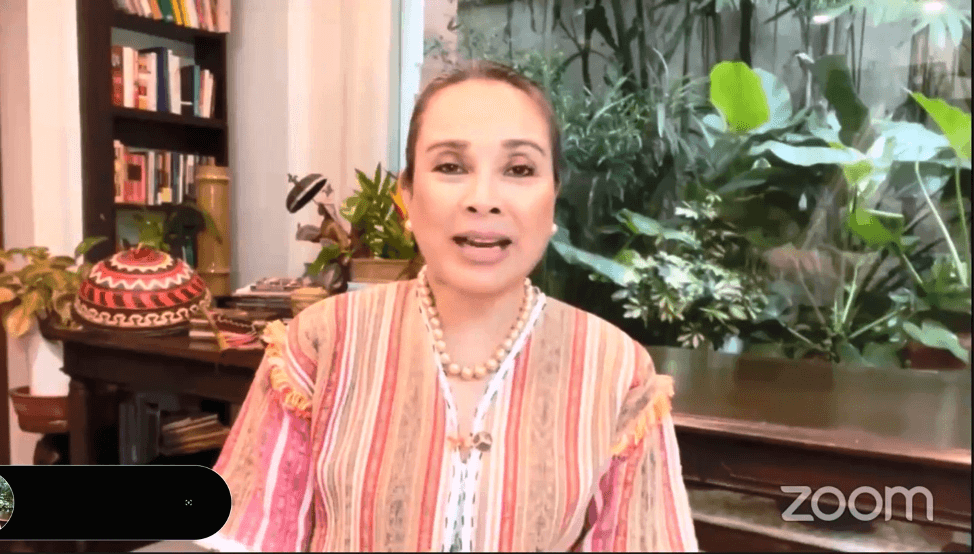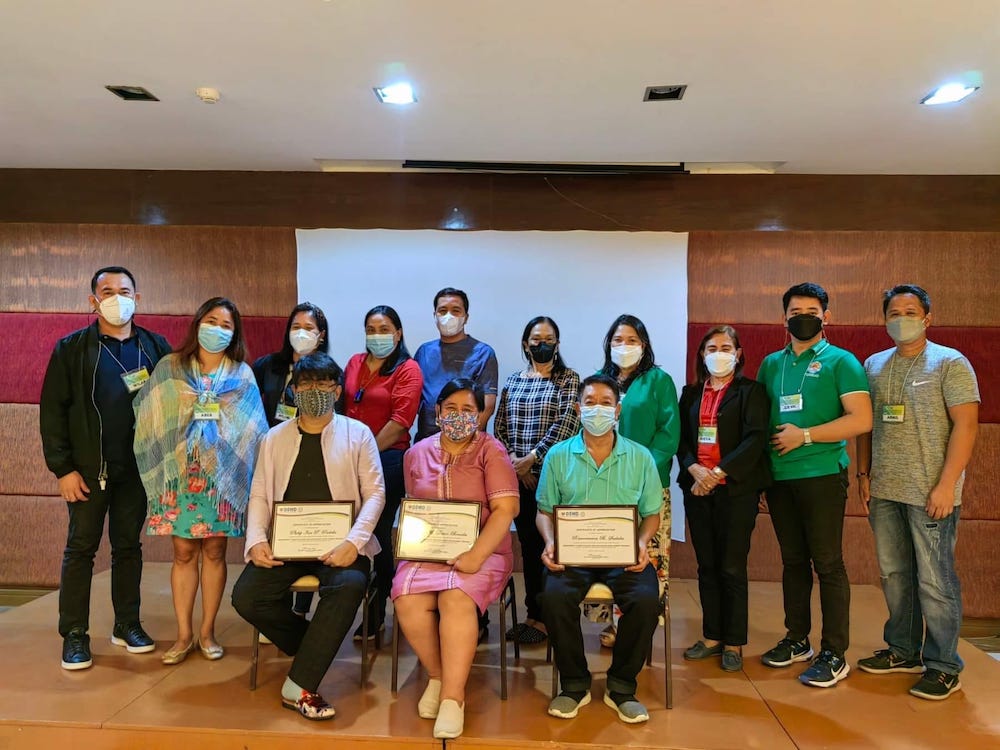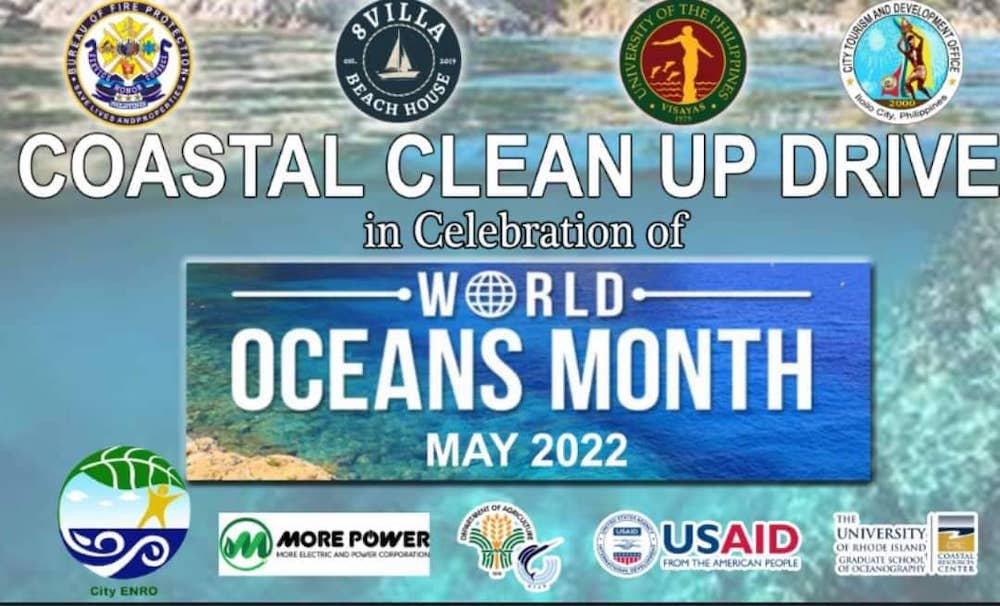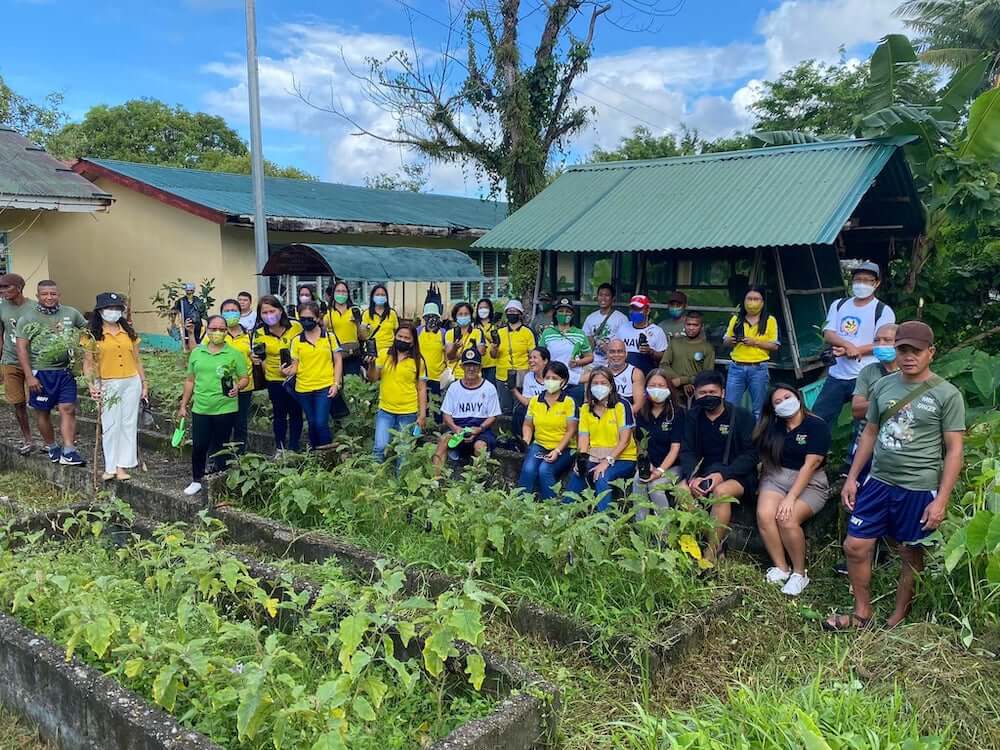
Ban on single-use plastics and best practices in seafood processing during the Covid-19 pandemic were highlighted in a webinar organized by the Institute of Fish Processing Technology, College of Fisheries and Ocean Sciences (CFOS-IFPT) on August 18, 2021.
The online forum on “practices and initiatives for safe and sustainable seafood technologies” featured House Deputy Speaker and Representative of the Lone District of Antique Loren Legarda as keynote speaker, and Climate Change Commission (CCC) Commissioner Rachel Anne S. Herrera and NSF International Training and Development Officer Ms. Mary Ann Galenzoga-Basal as resource persons.
In their respective talks, Legarda and Herrera underscored the importance of eliminating single-use plastics in the country to protect the environment, marine resources, and human life.
In her keynote message, Legarda presented the salient provisions of House Bill (HB) 9147 or the proposed Single-Use Plastic Products Regulations Act. The House of Representatives passed on final reading the bill that seeks to phase out single-use plastics such as drinking straws, stirrers, confetti, cotton bud sticks, and packaging within a year. The bill also mandates for research and development of more sustainable and environment-friendly alternatives to plastics.
Legarda said plastic pollution is one of the drivers of climate emergency that hits the poorest and marginalized the hardest, particularly the fisheries sector. The pandemic aggravates the problem due to excessive consumption of single-use plastics such as face masks, gloves, alcohol, and sanitizers. These plastics end up in the oceans degrading the marine ecosystem and threaten food security.
She warned that plastic addiction would lead to more plastics than fish in the ocean if the practice continues.
“The survival and prospering of human lives depend on the survival and prospering of marine lives,” Legarda stressed, calling for immediate actions to ensure the protection of the ocean not only for the fisher folks but for all Filipinos.
Meanwhile, Herrera shared government initiatives on circular economy and sustainable consumption and production.
One of these initiatives is the support for the national regulation to phase out single-use plastics through the Cabinet Cluster on Climate Change Adaptation, Mitigation and Disaster Risk Reduction (CCAM-DRR), a cluster of 17 agencies, including CCC, organized to pursue urgent measures to adapt and mitigate the effects of climate change in the Philippines.
Herrera underscored the UN body of climate scientists report describing climate emergency as code red for humanity. Many of the effects of climate change are severely felt in the Philippines. She said the country is experiencing more intense typhoons and rainfall, and the sea level rises four times faster than the global average due to global warming.
“We could still avert the worst impacts of climate change if we act now and immediate steps are needed,” Herrera stated.
Other key initiatives related to climate mitigation that the government through CCAM-DRR has been working to drive sustainability and accelerate the uptake of circular economy are the Framework of the Circular Economy for the ASEAN Economic Community, legislative campaign for House Bill 7609, or an act to promote the circular economy and a whole-of-nation transition towards a sustainable future, finalization of the Philippine Action Plan for Sustainable Consumption and Production’s (PAP4SCP), the National Plan of Action on Marine Litter, and the Strategic Investment Priority Plan that identifies priority projects and activities that can be granted incentives particularly those that produce environment-friendly alternatives to plastics.
Basal, on the other hand, presented the best practices for seafood processors during the pandemic.
Basal said that while no studies proved Covid-19 is transmitted through food, surface contamination can be an area of concern for food or fish processors in coming up with cleaning and sanitation schedules.
She shared the four pillars of Covid-19 prevention. These are social distancing, regular hand washing, use of suitable personal protective equipment (PPE), and routine cleaning and disinfecting.
She also presented some of the free online training that NSF International offers to help organizations with their Covid-19 response planning.
At the open forum, CFOS dean Prof. Encarnacion Emilia S. Yap expressed her support for the bill phasing out single-use plastics. “You consider us your warrior in our fight against plastic pollution and other contaminants that may affect the ecosystem of the country.”
Taking the lead of CFOS in November 2017, Yap has taken some initiatives to lessen environmental waste as early as 2018. One of these is issuing a memorandum banning the use of single-use plastics in all its activities.
“We make it a culture that we don’t use these things so that we don’t contribute to the problem,” Yap said.
The dean added that the College has research activities supporting the circular economy that are now in the pipeline. These are the utilization of wastes from seaweeds and milkfish processing and the study on the effects of microplastics, which can be more toxic if compounded by the absorption of other chemicals.
The webinar is the second installment of the online lectures entitled “Taking you forward: talks on current trends in post-harvest fisheries and food sciences,” aimed to showcase the emerging technologies and new practices in microbiology, chemistry, seafood processing, and fish plant management.
IFPT Director Sharon S. Nuňal said, “the knowledge and information are truly necessary for us in the academe as we determine our next steps particularly when it comes to packaging and safety practices as we move forward in our tripartite function, which is instruction, research, and public service in the field of post-harvest fisheries.”
She encouraged other SUCs, private organizations, government, non-government organizations, and fish processing industries to make changes to help achieve sustainable development goals and have smart climate practices.
The next webinars will be in September and October. The first was held in July on probiotic lactic acid bacteria applications in beer and milk tea with UP Mindanao Asst. Prof. Kriza Faye Calumba as resource person.





